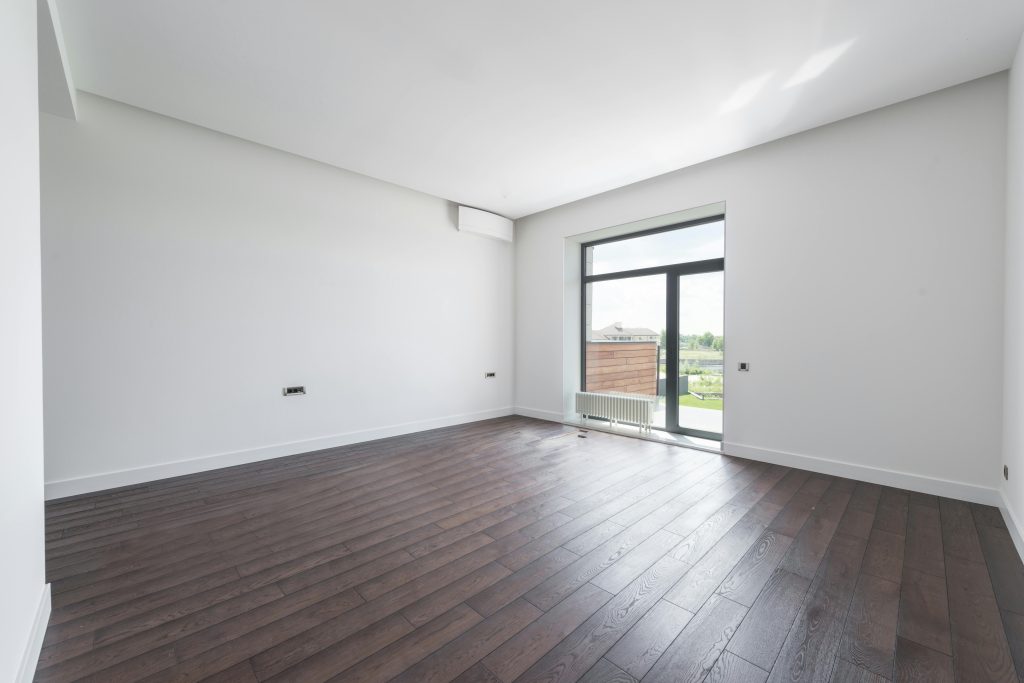That flicker of the lights you’ve been ignoring, the old-fashioned fuse box under the stairs, or an electrician’s sharp intake of breath – these are often the first signs that your home needs a major electrical overhaul: a full rewire.
Let’s be honest.
A rewire is one of the most expensive and disruptive home improvement jobs you can face. And right now, you’re probably asking yourself the same question everyone asks: “What on earth is this going to cost me?”
We get it. Finding out your home needs rewiring feels overwhelming. The costs, the mess, the time – it’s enough to make anyone’s head spin.
In this guide, we’ll walk you through everything you need to know: the telltale signs you need a rewire, the real costs involved in the UK, what the job actually entails, and – here’s the interesting bit – a practical alternative for those who want to sell their house fast and avoid the hassle altogether.
Key Signs Your House Needs Rewiring
Before we dive into costs, let’s confirm whether you actually need a rewire. After all, there’s no point worrying about something that might not even be necessary.
Here are the red flags that suggest your home’s electrical system needs urgent attention:
Old or Outdated Fuse Box
Take a look at your consumer unit (that’s the modern term for a fuse box). Does it have cast-iron switches or big, white ceramic fuses you have to replace?
If you’re still working with these relics, you’re overdue for an upgrade.
Modern consumer units with trip switches (circuit breakers) aren’t just convenient – they’re essential for safety and are a legal requirement for new electrical work.
Old-Fashioned Sockets & Switches
Round-pin sockets. Brown, brittle Bakelite switches. Sockets mounted directly on the skirting boards.
These aren’t just dated – they’re a sign of an old wiring system. If your home still has these vintage features, it’s a clear indicator the wiring behind them is equally antiquated and likely unsafe.
Not Enough Sockets
Modern life requires power. Lots of it.
If you’re constantly juggling extension leads and multi-plug adaptors, your electrical system wasn’t designed for today’s demands. And overloading old circuits? That’s a serious fire risk waiting to happen.
Flickering or Dimming Lights
It might seem like a minor annoyance, but lights that flicker or dim when you use another appliance often indicate loose, faulty, or overloaded wiring.
Don’t ignore it.
Burning Smells or Scorch Marks
This is a serious danger sign. If you notice a faint fishy or burning smell, or see scorch marks around sockets or switches, stop using them immediately and call a qualified electrician.
This isn’t a “wait and see” situation.
The Age of the Property
Here’s a simple rule of thumb: if your wiring hasn’t been checked in over 10 years, or the house was built before the mid-1980s and has never been updated, it’s highly likely to need a rewire.
Electrical standards have changed dramatically over the decades. What was acceptable in 1970 simply doesn’t meet today’s safety regulations.
The Average Cost to Rewire a House in the UK (2025 Estimates)
Right, let’s talk numbers.
On average, a full rewire in the UK can cost anywhere from £3,500 to over £9,000, depending on the size and location of your property.
But that’s just the headline figure. Let me break it down properly for you.
Cost by Property Size
Here’s what you can expect to pay for the electrical work, based on your property type:
- 2-Bedroom Terrace: £3,500 – £5,500
- 3-Bedroom Semi-Detached: £4,500 – £7,000
- 4-Bedroom Detached: £6,500 – £9,000+
- 5-Bedroom+ Detached: £8,000 – £12,000+
These are averages, mind you. Your actual quote could vary significantly.
Factors That Push Costs Up
Several factors can send your rewiring bill soaring:
Location matters. If you’re in London or the South East, add at least 20-30% to those estimates. Labour costs in these areas are significantly higher than the national average.
Property layout plays a role. A sprawling bungalow might cost more than a compact two-storey house with the same number of rooms. More floor area means more cable, more sockets, and more labour.
Accessibility is crucial. Got solid stone walls? That’s going to cost more than working with modern plasterboard. Chasing cables (cutting channels) into hard walls is a much bigger job.
Your specification choices add up. Want designer chrome sockets? USB charging points in every room? Smart lighting systems? These upgrades can quickly inflate the final bill.
The Hidden Costs Nobody Mentions
Here’s where it gets painful.
The electrician’s bill is just the beginning.
Plastering repairs will set you back another £200-£400 per room. Those channels chased into your walls for the new cables? They don’t magically repair themselves.
Redecorating is unavoidable. We’re talking £300-£600+ per room for painting and wallpapering.
Your entire house will likely need refreshing after the work’s done.
Alternative accommodation might be necessary. Many people can’t live in a house whilst it’s being rewired. A week in a hotel or rental? That’s another chunk of change you hadn’t budgeted for.
Suddenly, that £5,000 rewire has ballooned to £10,000 or more.
The Rewiring Process: Disruption is Guaranteed
Now, let’s talk about what you’re actually signing up for when you commit to a rewire.
Spoiler alert: it’s not pretty.
The Timeline
A typical 3-bed house takes 5-10 working days for the electrical work alone. That’s if the sparky isn’t off on other jobs every other day.
That’s just the sparky’s bit. Add another week for plastering to dry. Another few days for decorating. Before you know it, you’re looking at three weeks of chaos.
And that’s if everything goes smoothly.
The Reality of Living Through a Rewire
Picture this.
Floorboards in your home lifted. Deep channels carved into your walls. Dust absolutely everywhere – and I mean everywhere. In your clothes, your hair, your morning cuppa. And you’ll be lucky if you can even enjoy a morning cuppa since the electricity may be switched off while they work.
It’s not a tidy job. It can’t be.
Your electrician needs to access every corner of your property. That means furniture moved, carpets lifted, and your daily routine completely upended.
The Four Stages of a Rewire
Let me walk you through what actually happens:
- First Fix: This is the most disruptive phase. Old wiring gets ripped out. Walls get chased. New cables are run throughout the property. Your home will look like a building site because, well, it is one.
- Plastering: Once the cables are in, a plasterer comes to repair all those channels in your walls. More dust. More mess. And you can’t touch anything until it’s properly dried.
- Second Fix: The electrician returns to connect everything up. Sockets, switches, light fittings – they all get installed now. Finally, you can see light at the end of the tunnel.
- Certification: Everything gets tested to meet BS 7671 safety standards. You’ll receive an Electrical Installation Certificate (EIC) to prove the work’s been done properly and is safe.
Sounds exhausting, doesn’t it?
And after the 4 stages of rewiring you still need to paint the new plaster or repaper the walls.
The Alternative: Sell Your House, Hassle-Free
Facing a bill of thousands of pounds, weeks of disruption, and the stress of managing multiple tradespeople is a daunting prospect.
For many, particularly those dealing with an inherited property or needing to move quickly, this simply isn’t a viable option.
But what if you didn’t have to do any of it?
What if there was a happy buyer willing to purchase the property in its current state?
Here’s something most people don’t realise: you can sell your house “as-is”. No repairs. No rewiring. No stress.
Companies known as cash house buyers specialise in purchasing properties that need work. They take on the renovation headaches so you don’t have to.
And yes, this includes houses that need a complete rewire. At Property Rescue, we specialise in buying properties in any condition, including those with serious electrical faults.
How Property Rescue Removes the Stress of a Problem Property
Let’s get specific about how this works and why it might be the perfect solution for your situation.
No Repairs Needed
We buy properties in any condition.
Read that again.
You don’t need to spend a penny on electricians, plasterers, or decorators. We take care of it all after the sale. That £10,000 you were about to spend on rewiring? Keep it.
A Guaranteed, Fast Sale
Forget the uncertainty of the open market.
Estate agents might take months to sell your property – and that’s if a buyer isn’t put off by a bad survey report. Chains collapse. Sales fall through.
We provide a guaranteed cash offer and can exchange contracts the sale in as little as 48 hours (in urgent cases). Normally, a sale will be fully done and dusted within 28 days – cash in your bank.
Zero Fees
The offer we make is the amount you get. Nothing is deducted.
No estate agent fees eating into your profit. No legal fees to worry about. No hidden charges appearing at the last minute. We pay for all of that.
What we offer is what you receive. Simple as that.
Certainty and Simplicity
Here’s what you avoid:
- Buyers being put off by a bad electrical survey
- Broken property chains
- Months of viewings with strangers traipsing through your home
- The stress of managing a major renovation and hoping its done right
Our process is simple, confidential, and built around your timeline.
Make the Right Decision for You
Look, I’m not saying selling is right for everyone.
If you’re planning to stay in your home for the next 20 years, and you’ve got the cash and patience for a rewire, then crack on. It’s a sensible investment in your property’s future.
But if any of these apply to you, selling might be the smarter move:
- You’ve inherited a property you don’t want to renovate
- You’re relocating for work and need a quick sale
- You’re facing financial pressure and can’t afford major repairs
- You’re downsizing and don’t want the hassle
- The property has multiple issues beyond just the electrics
The maths often works in your favour, too.
Consider this: spend £10,000 on a rewire, or accept a cash offer that’s perhaps just £15,000 below full market value. When you factor in the stress, time, and additional hidden costs you’ve avoided, that “discount” starts looking like a brilliant deal.
Conclusion
Let’s recap what we’ve covered.
A house rewire is a major project. It’ll cost you anywhere from £3,500 to £12,000+, depending on your property. The work is incredibly disruptive, taking weeks to complete. And the hidden costs – plastering, decorating, alternative accommodation – can easily double your initial budget.
It’s a massive undertaking.
But here’s the thing: you don’t have to do it.
Selling directly to a trusted cash buyer like Property Rescue allows you to walk away with cash in the bank, without lifting a finger on repairs. No electricians to manage. No walls to replaster. No dust to clean.
Just a straightforward sale and the freedom to move on.
The choice is yours. Spend months and thousands on a rewire, or take the simple route to a fresh start.
Don’t let faulty wiring hold you back. Get your free cash offer today and discover the just-sold feeling, fast. Our cash offer is completely no obligation, so you’ve got nothing to lose.









